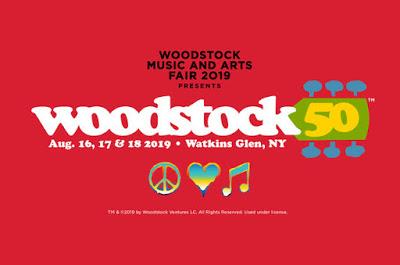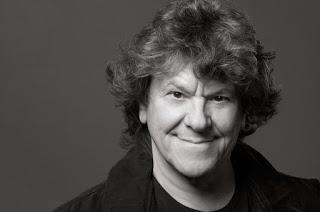
Infighting, site problems and a lack of financing pushed the festival over the edge.
Just days before financial supporters of the anniversary concert announced the festival was being cancelled, the partners behind Woodstock 50 made a last-ditch effort to bring on another experienced festival operator with the capital and expertise needed to fix the deeply troubled event, Billboard has learned.
Hoping to save the festival, organizers were planning to fire Rick Farman's firm Superfly, hire Dan Berkowitz's CID Entertainment to produce the festival, and raise $20 million in last-minute financing, sources tell Billboard, though a rep for festival-backer Dentsu has told Billboard that firing Superfly was never part of Dentsu's plan. Organizers approached both AEG and Live Nation about making a $20 million investment in the troubled festival, but with time running out and infighting grinding festival production to a halt, both AEG and Live Nation passed on bailing the event out.
Left with the choice of sinking more money into the festival or canceling, officials with Woodstock 50 financier Amplifi Live, which is owned by Japanese media firm Dentsu, released a statement on Monday (April 29) at 12 p.m. E.T. announcing that they were pulling the plug on the Aug. 16-18 event.
"Despite our tremendous investment of time, effort and commitment, we don't believe the production of the festival can be executed as an event worthy of the Woodstock Brand name while also ensuring the health and safety of the artists, partners and attendees," a statement from Dentsu Aegis Network reads. "As a result and after careful consideration, Dentsu Aegis Network's Amplifi Live, a partner of Woodstock 50, has decided to cancel the festival. As difficult as it is, we believe this is the most prudent decision for all parties involved."
It's not totally clear if Dentsu can unilaterally cancel the festival -- a representative for a group claiming to represent Woodstock 50 issued a statement to the Poughkeepsie Journal saying "Woodstock 50 vehemently denies the festival's cancellation and legal remedy will (be) sought." Woodstock co-founder and producer Michael Lang had less to say, with his publicist telling Billboard "we do not have a statement and are awaiting further advice."
Dentsu had already spent more than $30 million on the festival lineup that included headliners the Killers, Miley Cyrus, Dead & Co., Chance the Rapper, Jay-Z, Imagine Dragons and Halsey. Tickets for Woodstock 50 were supposed to go on sale on Earth Day (April 22), but talent manager Amanda Phelan, with Woodstock 50 talent-buyer Danny Wimmer Presents, sent an email to agents representing acts at the concert explaining that the event was indefinitely postponing its ticket sale date.
While producing the festival always felt like a long shot because of its size (100,000 attendees) and scale, Lang had dealt with financing and permitting problems before. The original 1969 festival lost more than $1 million and was beset by bad weather, opposition from local residents and more than 600,000 people showing up and overtaking the festival.
Fast forward 50 years: even if Lang and his investors could overcome the logistical and financial issues, it still faced the very real possibility that ticket sales could be far below expectations. With only 109 days to go, Woodstock 50 was losing precious time to put tickets on sale and turn the tide on rumors that the event, which was charging $450 for a general admission ticket, was in serious trouble.
"Woodstock is a phenomenon that for 50 years has drawn attention to its principles and also the rumors that can be attached to that attention," Lang said in a statement to Billboard on April 20, adding that fears of its demise were "just more rumors."
Reps for Lang say he was unaware of the effort to raise the $20 million investment and when asked yesterday about a potential bailout, his representative told Billboard that Dentsu was a multi-billion dollar company and that "$20 million is nothing to those guys."
Reps for Dentsu also say they did not make the solicitation for increased funding. Sources tell Billboard the request for money was likely made by one of the six partners in the Woodstock 50 leadership team, represented by LA attorney Alex Weingarten. Besides Lang, the identities of the other partners in Woodstock 50 are unknown, but sources say the group had licensed the name and intellectual property from Woodstock Ventures, which Lang co-owned.

"The state has the ability to issue a conditional permit in the absence of a complete submission, if they reasonably believe the applicant has the capacity to fully meet all requirements of the Mass Gathering regulations," says Tim O'Hearn, County Administrator for Schuyler county, where the event was to take place.
State law requires a conditional permit before tickets sales can begin, O'Hearn said, adding that a local review of the application was ongoing.
"The County conducts a parallel review of the application prior to issuing its own permit as well. In our local law there is no prohibition of ticket sales prior to issuance and the County must act on permit request no later than 45 days in advance of [the] event," O'Hearn told Billboard in an email.
Woodstock at 50: Michael Lang On What He Learned From The Iconic Festival And Why He Wants to Do It Again
The permit problems are not dissimilar to issues the original Woodstock festival faced, having found and lost several sites in the upstate New York area until eventually settling on White Lake in Bethel, N.Y.
"There was a lot of fear and eventually after going back and forth for months and building on a site, the city of Saugerties, New York passed Local Law No. 1 that made it almost impossible for us to produce the festival," Lang explained in a January interview with Billboard. With a month to go, Lang and partners Joel Rosenman, Capitol Records' Artie Kornfeld and John P. Roberts, heir to the Polident denture adhesive fortune, made a deal with dairy farmer Max Yasgur to host Woodstock on a 600-acre dairy farm.
What followed were three days of incredible music by Santana, Creedence Clearwater Revival, Janis Joplin, the Grateful Dead, The Who and Jefferson Airplane, but rainy and muddy conditions and the arrival of more than 600,000 fans created unmanageable conditions and organizers lost nearly all of their $1.2 million investment in the festival.
Woodstock was staged two more times, first in 1994 and then in 1999, but both those events were marred by poor weather conditions, violence and reports of sexual assault -- the 1999 event ended with a riot and a large fire lit by festival goers.
Lang told Billboard that Woodstock 50 would be different, as he was booking acts that were known for taking stances on political and social issues and a plan to relaunch the Woodstock brand as a year-round musical concept.
"It always kind of bugged me that things like Live Aid, which took a tremendous amount of effort and a huge production, just end after the concert is over," Lang told Billboard in January. "So we're trying to make it something that penetrates and engages people into getting involved. We're in a situation where we could lose the planet if we're not careful."

